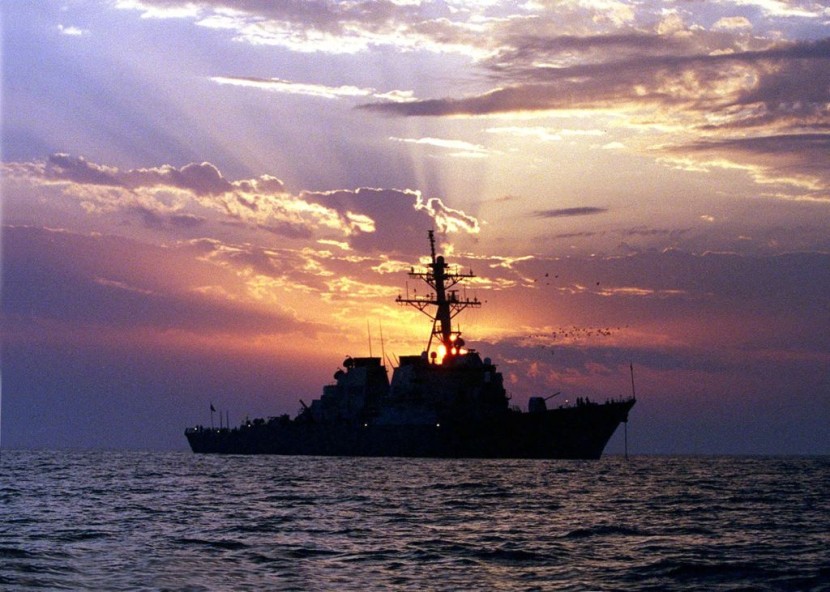The U.S. Navy's top Middle East commander revealed to the Associated Press on Monday that Iran is "very directly involved" in ship attacks that Yemen's Houthi rebels have carried out during Israel's war against Gaza.

Brad Cooper, the head of the Navy's 5th Fleet, stopped short of saying Tehran directed individual attacks by the Houthis in the Red Sea and the Gulf of Aden. But Cooper did acknowledge that the attacks associated with Iran have expanded from previously threatening just the Persian Gulf and its Strait of Hormuz into waters across the wider Middle East.
"Clearly, the Houthi actions, probably in terms of their attacks on merchant shipping, are the most significant that we've seen in two generations," he told the AP in a telephone interview. "The facts simply are that they're attacking the international community; thus, the international response I think you've seen."
Since November, the Iranian-backed Houthis have allegedly launched at least 34 attacks on shipping through the waterways leading up to Egypt's Suez Canal. The canal serves as a vital route for energy and cargo coming from Asia and the Middle East onward to Europe. The rebels, who have been at war with a Saudi-led coalition backing Yemen's exiled government since 2015, link their attacks to the Israel-Hamas war. However, most of the ships they've targeted have very little ties to Israel or none at all.
The AP went on to report that in recent days, the U.S. has launched seven rounds of airstrikes on Houthi military sites, targeting air bases under the rebels' control and suspected missile launch sites. The tempo of Houthi attacks on shipping appears to have slowed for the time being as the U.S. and its allies have increased their naval patrols in the region. Nonetheless, risks for the global economy remain as many ships continue to bypass the route for a longer trip around Africa's southern tip.
As Cooper took command of the 5th Fleet in 2021, the threat to shipping focused primarily around the Persian Gulf and its narrow mouth, the Strait of Hormuz, through which a fifth of all oil traded passes. A series of attacks blamed on Iran and ship seizures by Tehran followed the collapse of Iran's nuclear deal with world powers.
What Does The Naval Commander Think?
In his interview with the AP, the Navy commander acknowledged the threat from Iran's proxies and that its distribution of weapons extended from the Red Sea out to the far reaches of the Indian Ocean. The U.S. has blamed Iran for recent drone attacks on shipping, and a U.S.-owned cargo vessel came under attack from the Houthis in the Gulf of Aden last week.
So far, Iran has not directly gotten involved in fighting either Israel or the U.S. since the war in Gaza began on Oct. 7. However, Cooper maintained Iran had been directly fueling the Houthi attacks on shipping.
"What I'll say is Iran is clearly funding, they're resourcing, they are supplying and they're providing training," Cooper said. "They're obviously very directly involved. There's no secret there."
U.S. forces this month seized Iranian-made missile parts and other weaponry from a ship bound for the Houthis in a raid that saw two Navy SEALs go missing. The U.S. military's Central Command said Sunday it now believes the SEALs are dead.
While not directly saying his fleet's drones played a part in the seizure, Cooper hinted at it.
"They are specifically designed to conduct interdiction operations," he said. He added: "There's no squeaking anything by it."
Cooper closed by commenting that, "What we need is a Houthi decision to stop attacking international merchant ships. Period,".
Iran's mission to the United Nations has not commented on Cooper's remarks.









